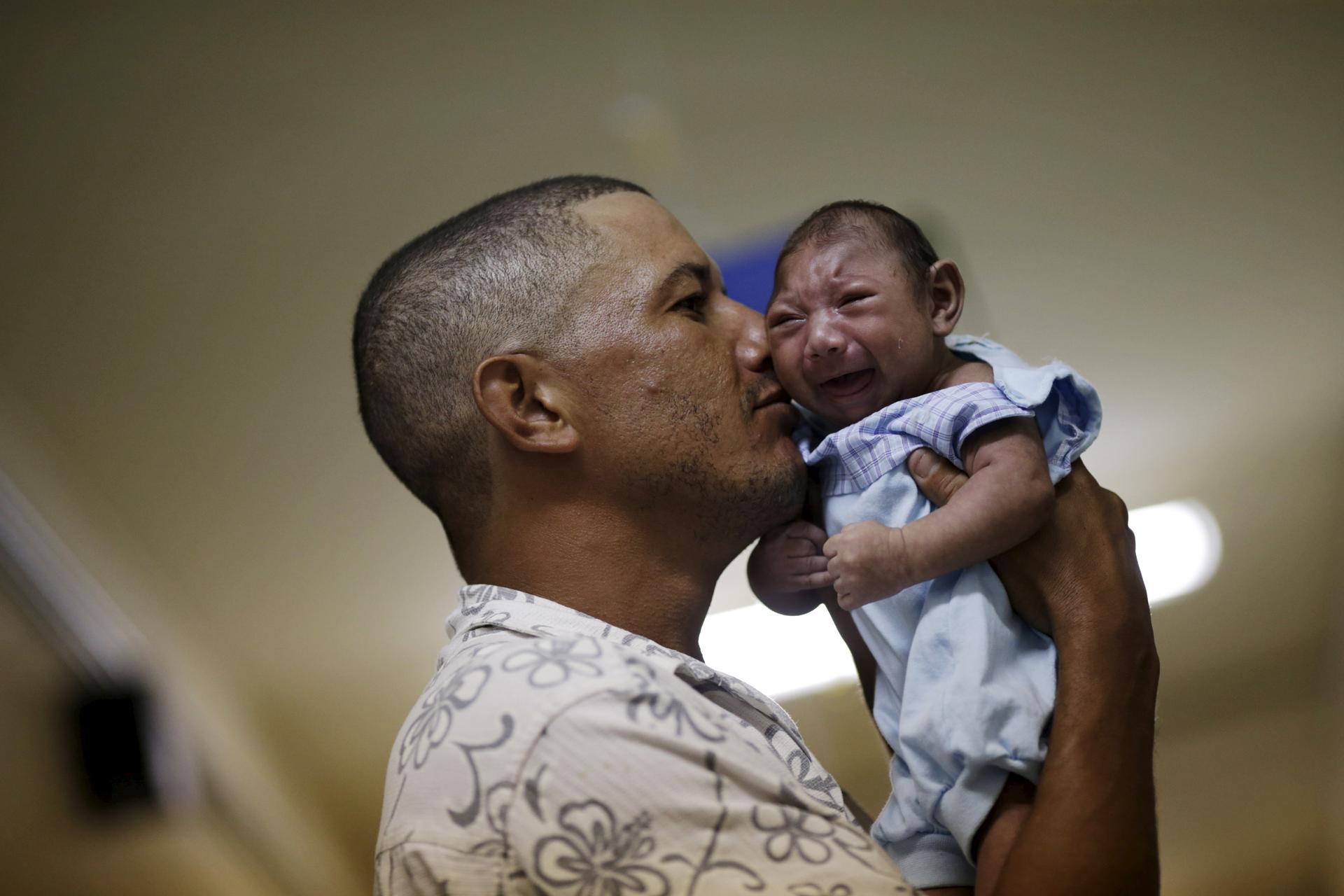Geovane Silva holds his son Gustavo Henrique, who has microcephaly, in Recife, Brazil.
One estimate, one panicky world.
This morning, the World Health Organization estimated that 3 to 4 million people may become infected with the Zika virus.
The organization's head, Dr. Margaret Chan, said Zika had gone "from a mild threat to one of alarming proportions."
The news followed word from medical researchers that developing a vaccine for the Zika virus could take up to a decade.
Zika has spread rapidly across South America in recent months, and is expected to reach most of the rest of the Americas in the next few years. Although the virus does not pose a serious risk to most adults and children, it does present a danger to pregnant women, or women considering becoming pregnant.
The virus has been associated with a dramatic surge in cases of microcephaly in newborn babies — a condition where babies are born with unusually small heads and life-long disabilities. Since last October there have been nearly 4,000 cases of microcephaly in Brazil . The contrasts with 2014, when just new 150 cases were reported during the entire year.
The BBC’s global health correspondent, Tulip Mazumdar, says that ending the current outbreak will be difficult.
“The world doesn’t have the tools to fight it,” she says “There’ s not a vaccine, there’s not a cure. There’s not a lot known about Zika — it's not a disease that has been studied in great detail. So everyone is running to play catchup and put a lid on it as soon as possible.”
Staff at the University of Texas Medical Branch, who have been working on a medical response to the outbreak, told the BBC that they were concerned that a vaccine would be slow to develop. Developing an initial vaccine might take as long as two years, with more years needed for testing and regulatory approval.
The Zika virus was first discovered in primates in modern Uganda in the 1940s, with the first human case recorded a few years later in west Africa. For much of the time since then it was assumed to a largely harmless infection, and has received little attention from the medical community.
Every day, reporters and producers at The World are hard at work bringing you human-centered news from across the globe. But we can’t do it without you. We need your support to ensure we can continue this work for another year.
Make a gift today, and you’ll help us unlock a matching gift of $67,000!
